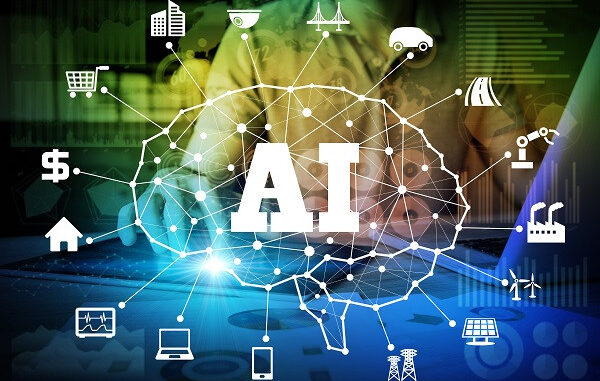
The potential of artificial intelligence (AI) is vast and spans multiple sectors, promising transformative changes in how we live, work, and interact. Here are some key areas highlighting AI’s potential:
### 1. **Healthcare**- **Diagnostics**: AI algorithms can analyze medical images, lab results, and patient data to aid in faster and more accurate diagnoses.









– **Personalized Medicine**: Machine learning models can predict individual responses to treatment, allowing for tailored healthcare plans.
– **Drug Discovery**: AI can streamline the drug discovery process by predicting molecular behavior, accelerating the identification of new treatments.
### 2. **Business and Economy**
– **Automation**: AI can automate routine tasks, increasing productivity and reducing operational costs across various sectors, from manufacturing to customer service.
– **Predictive Analytics**: Businesses can leverage AI for sales forecasting, market trend analysis, and customer behavior insights, leading to informed strategic decisions.
– **Supply Chain Optimization**: AI algorithms can enhance inventory management and logistics, reducing waste and improving efficiency.
### 3. **Education**
– **Personalized Learning**: AI can create customized educational experiences, adapting content to the learning pace and style of individual students.
– **Administrative Efficiency**: AI tools can help streamline administrative tasks, allowing educators to focus more on teaching and student interaction.
– **Accessibility**: AI technologies can provide assistive tools for students with disabilities, making learning environments more inclusive.
### 4. **Transportation**
– **Autonomous Vehicles**: AI-driven self-driving cars are on the verge of mainstream use, which could reduce traffic accidents and improve mobility.
– **Traffic Management**: AI can analyze real-time traffic data to optimize traffic flow and reduce congestion in urban areas.
– **Predictive Maintenance**: AI systems can predict maintenance needs for vehicles and infrastructure, enhancing safety and reducing downtime.
### 5. **Environmental Sustainability**
– **Resource Management**: AI can optimize energy consumption in buildings and across industries, reducing waste and enhancing sustainability.
– **Climate Modeling**: Machine learning models are being developed to improve climate predictions and identify effective climate change mitigation strategies.
– **Biodiversity Monitoring**: AI can help track wildlife populations and habitat changes, informing conservation efforts.
### 6. **Finance**
– **Algorithmic Trading**: AI algorithms can analyze market data at unprecedented speeds, leading to more informed trading decisions.
– **Fraud Detection**: AI systems can monitor transactions and flag unusual patterns, enhancing security in financial transactions.
– **Risk Assessment**: AI can provide advanced risk modeling to inform lending decisions, underwriting, and investment strategies.
### 7. **Entertainment and Media**
– **Content Creation**: AI can generate art, music, and written content, democratizing creative processes and enabling new forms of expression.
– **Recommendation Systems**: AI-driven recommendations enhance user experiences by personalizing content on platforms like Netflix, Spotify, and social media.
– **Game Development**: AI can create more immersive gaming experiences through intelligent non-player characters (NPCs) and adaptive game environments.
### 8. **Customer Experience**
– **Chatbots and Virtual Assistants**: AI can improve customer service through intelligent chatbots that provide instant responses and support.
– **Sentiment Analysis**: AI tools can analyze customer feedback to gauge sentiment and improve products and services based on consumer insights.
### Opportunities and Ethical Considerations
While the potential of AI is vast, it also comes with challenges:
– **Bias and Discrimination**: AI systems can reflect and magnify existing biases if trained on biased datasets. Ensuring fairness in AI systems is crucial.
– **Privacy and Security**: The use of personal data in AI applications raises significant privacy concerns that must be addressed through robust regulations and ethical frameworks.
– **Job Displacement**: The automation of jobs may lead to unemployment in specific sectors, necessitating retraining programs and support for affected individuals.
– **Control and Accountability**: As AI systems become increasingly autonomous, questions arise about accountability and decision-making processes.
### Conclusion
AI holds the potential to redefine industries, improve quality of life, and address complex global challenges. However, realizing this potential requires thoughtful consideration of ethical implications and proactive measures to ensure that AI benefits all segments of society. Collaboration among governments, industry leaders, and communities will be paramount in harnessing AI’s capabilities responsibly and effectively.


Leave a Reply